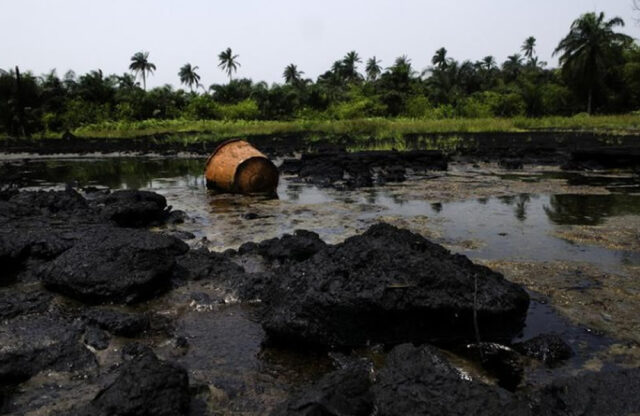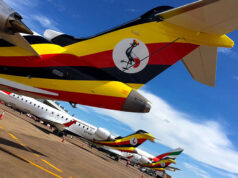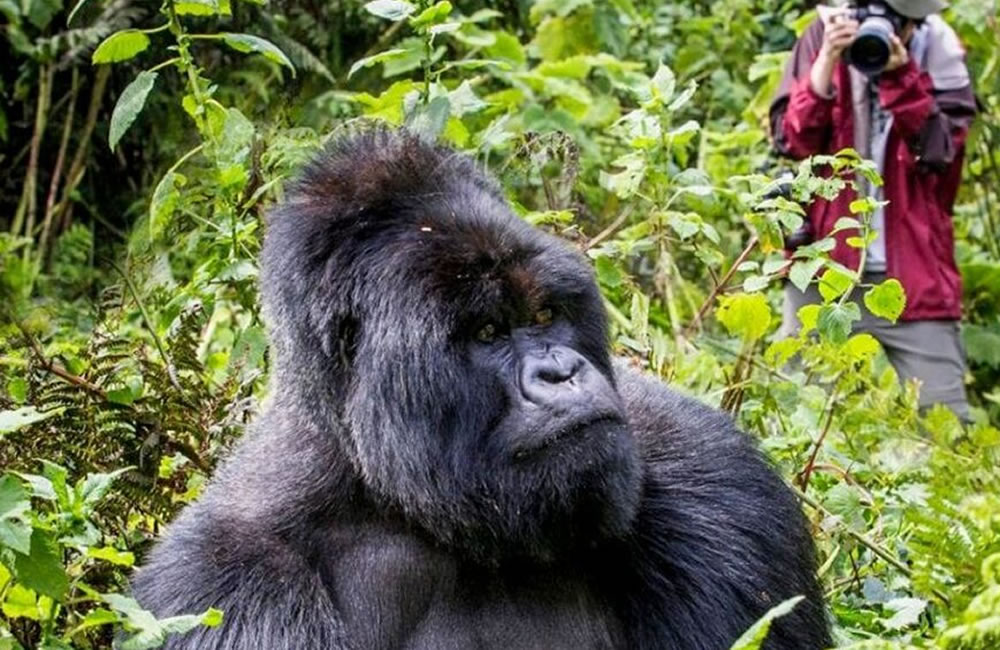It took 13 years, but finally a Netherlands appeals court directed criminal corporation Royal Dutch Shell to pay punitive damages for ongoing oil spills happening over four decades that caused death, devastating illness, and long-term environmental damage in Nigeria.
The decision was a groundbreaking one, representing the first time ever that a Dutch company was tried in a Dutch court for damages it had caused in another country. It will also go down in history as one with compensation and actions required in the verdict that will force further actions years into the future.
The initial oil spills that launched case took place via pipelines and drilling sites operated by Royal Dutch Shell and its affiliates in Nigeria’s Ongoniland between 1976 and 1991. During that fifteen-year period, the facilities and oil transport systems recorded 2,976 separate oil dumps totaling over two million barrels of oil. Though some of the initial sources of those spills were repaired, corroded pipelines left in place by the Dutch fossil fuel giant continued to leak over land, creeks, and larger open waterways all the way to present day.
Friends of the Earth International (FOEI), one of the parties to the eventual litigation that finally forced Shell to justice for its crimes, said about what happened that the “horror of the vast stretch of black, lifeless landscape stretching out in front of us is something that has to be seen to be believed”.
With the poor who lived along side the spills suffering from illnesses derived from eating, drinking, and bathing with contaminated food and water after the initial damages had occurred, many Ogoni activists had taken to the streets to protest what Shell had wantonly caused in the region. Shell’s power in driving decisions in the African nation was so powerful that one of the leaders of that activist movement, the late Ken Saro-Wiwa, was eventually executed by Nigeria’s military forces in 1995 in a bloody attempt to silence him and his allies.
In 2008, backed by FOEI’s Netherlands affiliate Milieudefensie sued for justice and corrective action on behalf of farmers Eric Dooh from Goi, Elder Friday Alfred Akpan from Ikot Ada Udo, and Chief Fidelis A. Oguru and Alali Efanga from Oruma, all living in the Niger Delta. The defendants in the case included both Royal Dutch Shell and the Petroleum Development Company of Nigeria (SPDC – Shell’s subsidiary in Nigeria).
The venue for the case was in the Netherlands itself.
A major point for the case was whether the Netherlands oil giant would ever be held to account for its role in creating destruction elsewhere in the world.
As the case was filed, Donald Pols, director of Milieudefensie, justified the logic of trying Shell in the Netherlands for a crime committed overseas as a much-needed check on the power of multinationals. “Big companies can do whatever they want in a country like Nigeria,” he said at the time.
“The Dutch government hardly sets any rules for the way in which multinationals can operate abroad,” he continued. “Because these regulations are lacking, the lives of ordinary citizens can be destroyed completely. If such regulations existed, a lawsuit such as this would not have been necessary. I call on the government to take action on this matter.”
As the case proceeded, a lower court ruled that only SPDC was responsible for the spills covered by the lawsuit. That decision, which basically bought into Shell’s protests that it had no direct involvement in Nigeria, and at first looked like it might stick. As appeals continued, that lie was exposed after extensive discovery of internal documents from Shell and on-the-ground investigations in Nigeria itself. In 2013, an important interim verdict ruled that Royal Dutch Shell itself must be held ultimately liable for the damages caused by the spills.
Since that time, in view of the total damages caused and the high risks such a decision might entail on this and other similar cases in the future, Royal Dutch Shell continued to appeal. During the same period, further evidence was gathered proving that Shell’s previous attempts to clean up the oil from the earliest spills was inadequate even by the Dutch company’s own standards.
The case evolved to one where Milieudefensie added to its demands compensation for farmers having lost livelihoods because of the environmental damage. They also wanted Shell ordered to repair existing pipelines and install other improvements to minimize future spills from the same oil distribution network.
Yesterday the 13-year case brought by the four farmers was finally decided by the highest court in the Netherlands. It ruled that Royal Dutch Shell’s Nigerian subsidiary SPDC – and Shell itself — must pay punitive damages for the oil spill contamination which continued for over four decades. Those damages included compensation for lost wages, expenses of cleanup, and further penalties for attempting to evade its responsibility, for oil spills in the villages of Oruma and Goi.
The appeals court also ordered Royal Dutch Shell itself liable to install new pipeline equipment to bring a halt to further destruction by leaks yet to come from the same lines. This will specifically include installation of new leak detection systems in pipelines in Oruma.
It ordered this with a recognition that Shell has breached its required “duty of care” in the region.
Eric Dooh, the father of one of the farmers who had filed the original case and died later, declared soon after the ruling was announced that, “Finally, there is some justice for the Nigerian people suffering the consequences of Shell’s oil.”
“It was a bittersweet victory,” Dooh went on, “since two of the plaintiffs, including my father, did not live to see the end of this trial. But this verdict brings hope for the future of the people in the Niger Delta.”
Milieudefensie director Donald Pols called the court decision “fantastic news” and praising that now “Shell has to compensate for the damage.”
“This is also a warning for all Dutch transnational corporations involved in injustice worldwide,” Pols declared. “Victims of environmental pollution, land grabbing, or exploitation now have a better chance to win a legal battle against the companies involved. People in developing countries are no longer without rights in the face of transnational corporations.”
In its statement on the case, Shell said it was “disappointed” about the verdict. Even after all the evidence had presented, the company said yet again that it was “sabotage” that the oil spills happen and that they should not have been found guilty.
It is true that there was some sabotage of Shell pipelines, caused by those who Shell oppressed and were oppressed by the corrupt Nigerian government on behalf of Shell. The sabotage was a desperate, misguided and destructive way of striking out against Shell when nothing else worked.
And it is not just Nigeria where Shell has caused devastation. The company has always been completely rotten to the core. It is a prime example of a fascist corporation.
The company was founded as a colonial enterprise in 1890 to loot oil from Sumatra and in 1900 its leadership took an even harder shift to racism and fascism when psychopath Henri Deterding took the helm. Deterding was a devout support of Hitler, Mussolini and Franco. Shell was a war profiteer in WW I and WW II, supplying fuel to both sides. Shell financially supported the rise of the Nazi party and even sent its own Jewish employees off to concentration camps.
Deterding was Dutch but initially buried at his Nazi estate in Germany in 1939 with a full Nazi ceremony. Despite his support for Britain’s enemies, the British Queen knighted him.
Shell long made no attempt to hide its fascist nature. It flew the Nazi flag at its headquarters for many years and in 2015 named one of its ships the Pieter Schelte, after a convicted Dutch Nazi war criminal. The ship’s name was eventually changed after global outrage but for a long time the ship-builder, funded by Shell, refused to change the name.






